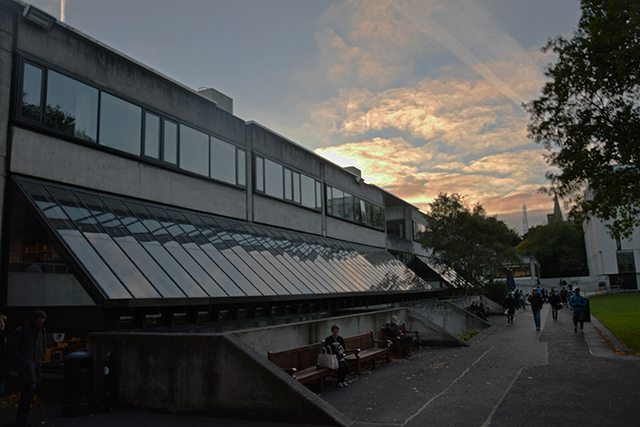
Interacting with an eager audience, the speakers examined the practical aspects of terraforming including choice of location, how long it would take to get there and energy and financial costs. Confessing that she had “mixed feelings” towards Elon Musk’s colonisation project of Mars – since it implied using thermonuclear bombs as artificial suns for making the Red Planet inhabitable – Maggie Goulden pointed out that Venus might be a more suitable candidate for terraforming. The gravity there is comparable to Earth conditions and its dense atmosphere could provide part of the huge amount of energy that would be needed to create an Earth 2.0.
Invited to reflect on the composition of a hypothetical terraforming crew, Colin Fitzsimons and Peter Cox agreed on emphasising the need to choose very skilled people. As for the motivations of these trailblazers, Cox remarked that the quick deterioration of our current environment might entice many people to embark on such expeditions in the next decades.
During the discussion, climate change was a recurrent topic and was often used as a yardstick to assess the relevance and the feasibility of terraforming as a means to ensure the survival of mankind. Indeed, discussing terraforming quickly led the panellists and the audience to tackle broader technological and ethical issues. Challenging the premise that it would be right to consider any other planet or exoplanet as a potential new home, Cox declared that they would be more useful for human knowledge if they were not invaded and remained only “laboratories”. A fruitful alternative to invading other planets would then be developing orbit-based stations.
Goulden also lamented the mercantilist and colonialist mentality that informs many terraforming projects and wished that all of them would begin with a “studying from afar” phase. All panellists finally stressed that the current efforts made to develop terraforming technologies cannot be directly applied to curb climate change at the moment since our understanding of the complexity of whole ecosystems is still limited.
The final enlightening debate revolved around what terraforming reveals of the limits and values we, as humans, associate with life. On another planet, would we be able to recognise and respect other forms of life and intelligence? Or would we always make our own interests prevail? The question did not receive a definite nor consensual answer but the attendant that phrased it was thanked at the end of the panel – and rewarded by a Mars chocolate bar, in keeping with Space Soc tradition – for the input he provided for the collective reflection.






